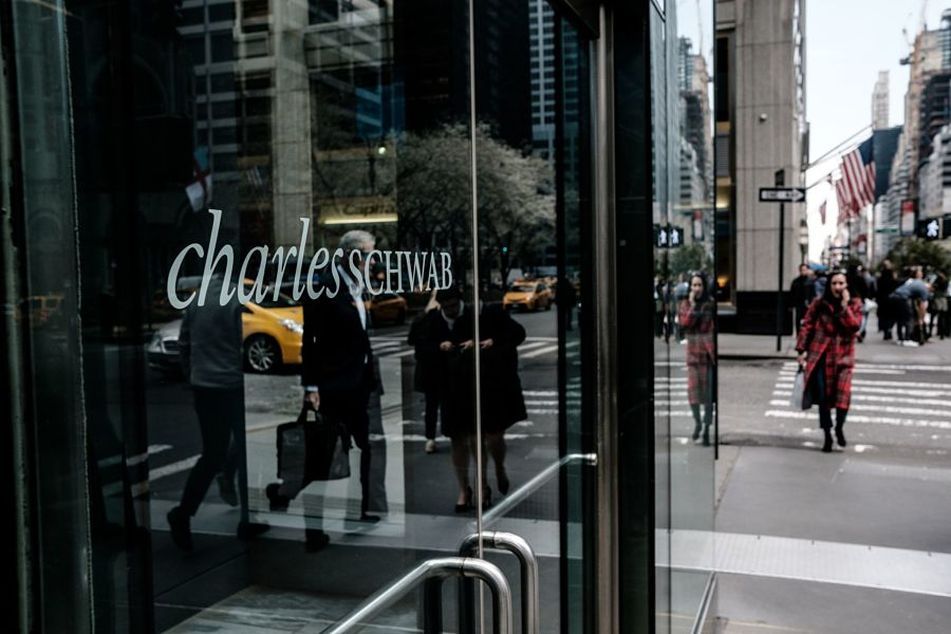SEC hits Schwab robo-adviser with $187 million fine

Charles Schwab Corp. has agreed to pay $187 million to settle charges from the Securities and Exchange Commission that the discount brokerage did not disclose how its robo-adviser used large cash holdings in client portfolios to generate revenue.
Charles Schwab Corp. has agreed to pay $187 million to settle charges from the Securities and Exchange Commission that the discount brokerage did not disclose how its robo-adviser used large cash holdings in client portfolios to generate revenue.
From March 2015 through November 2018, portfolios managed by Schwab’s automated investing technology, Intelligent Portfolios, held between 6% and 29.4% of client assets in cash, the SEC wrote in a cease-and-desist order. The robo-adviser’s disclosures stated that cash allocations were determined by a disciplined methodology that sought optimal returns, but Schwab’s internal analysis showed that the amount of cash would cause clients to make less money under most market conditions, the SEC alleged.
Schwab profited from the cash drag by sweeping money to its affiliate bank, loaning it out and keeping the difference between the interest earned and what it paid out to robo-adviser clients. The SEC charged that Schwab didn’t properly disclose this conflict of interest while also advertising Intelligent Portfolios as free from advisory and hidden fees.
“Schwab claimed that the amount of cash in its robo-adviser portfolios was decided by sophisticated economic algorithms meant to optimize its clients’ returns when in reality it was decided by how much money the company wanted to make,” Gurbir S. Grewal, director of the SEC’s Division of Enforcement, said in a statement. “Schwab’s conduct was egregious and today’s action sends a clear message to advisers that they need to be transparent with clients about hidden fees and how such fees affect clients’ returns.”
The penalty includes $52 million in disgorgement and prejudgement interest, and a $135 million penalty. Schwab agreed to the fine, the cease-and-desist order and an independent review of its robo-adviser without admitting or denying the charges.
[More: How much does Schwab’s cash sweep really cost clients?]
Schwab had disclosed the SEC probe in July and told shareholders it was setting aside $200 million to settle charges. The company released a statement Monday saying that it was “pleased to put this behind us.”
Schwab also stated that Intelligent Portfolios is a “key component” of its advisory services and defended the revenue model of its robo-adviser.
“We are proud to have built a product that allows investors to elect not to pay an advisory fee in return for allowing us to hold a portion of the proceeds in cash, and we do not hide the fact that our firm generates revenue for the services we provide,” Schwab said in its statement. “We believe that cash is a key component of any sound investment strategy through different market cycles.”
The SEC is paying close attention to advisers’ disclosures and potential conflicts of interest, and Schwab isn’t the only firm that has faced recent changes. San Diego-based Madison Avenue Securities was fined $800,000 earlier in June for failing to disclose or not adequately conflicts associated with compensation the firm received from certain advisory client investments.
“This certainly won’t be the last enforcement action for the year involving disclosures and conflicts,” said Max Schatzow, co-founder of RIA Lawyers.
Regulators are paying special attention to robo-advisers, and the settlement with Schwab is “absolutely massive,” he added.
“If you need to inflict pain on a registrant of [Schwab’s] size, the penalty has to move the needle,” Schatzow said.
On Twitter, XY Planning Network co-founder Michael Kitces estimated that the $187 million was equivalent to 100% of revenue on $75 billion of assets under management at the robo-adviser.
“This is really a huge fine for Schwab,” Kitces said. “If their profit margin is 20%, that fine is equal to 100% of profits on $375B of robo-AUM.”
A Northern California District Court judge last week dismissed a class-action lawsuit from Intelligent Portfolios clients alleging the over-allocation of cash in their portfolios cost investors as much as $500 million in missed market gains. District Court Judge Phyllis Hamilton decided the court was unable to hear the complain under the Securities Litigation Uniform Standards Act.
A spokesperson for Schwab called the lawsuit a “meritless complaint.”
Learn more about reprints and licensing for this article.








